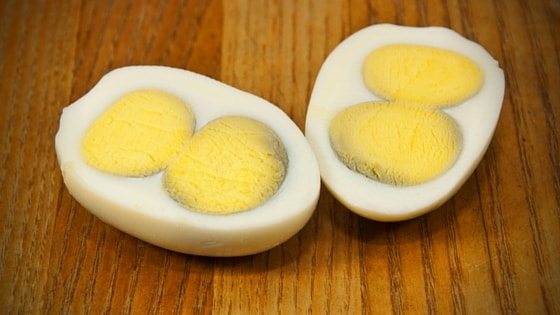Why is my hen crowing? If this is a question you’ve asked yourself, then read on – you’re not alone!
Most experienced chicken owners have had this experience – or at least a similar one. You’re sitting in your living room, enjoying a cup of coffee while you listen to your hens cackle and chirp in the backyard coop. Then all of a sudden, a crow breaks through the morning area.
A crow? Why is my hen crowing?
Relax. You probably didn’t mistakenly receive a rooster in your chick order (although you may want to double-check, since this does occasionally happen and it could be a rooster crow that you hear!). Chances are, your hen is crowing for another reason.
It’s really nothing to worry about. Let’s talk about some of the most common reasons why hens crow.
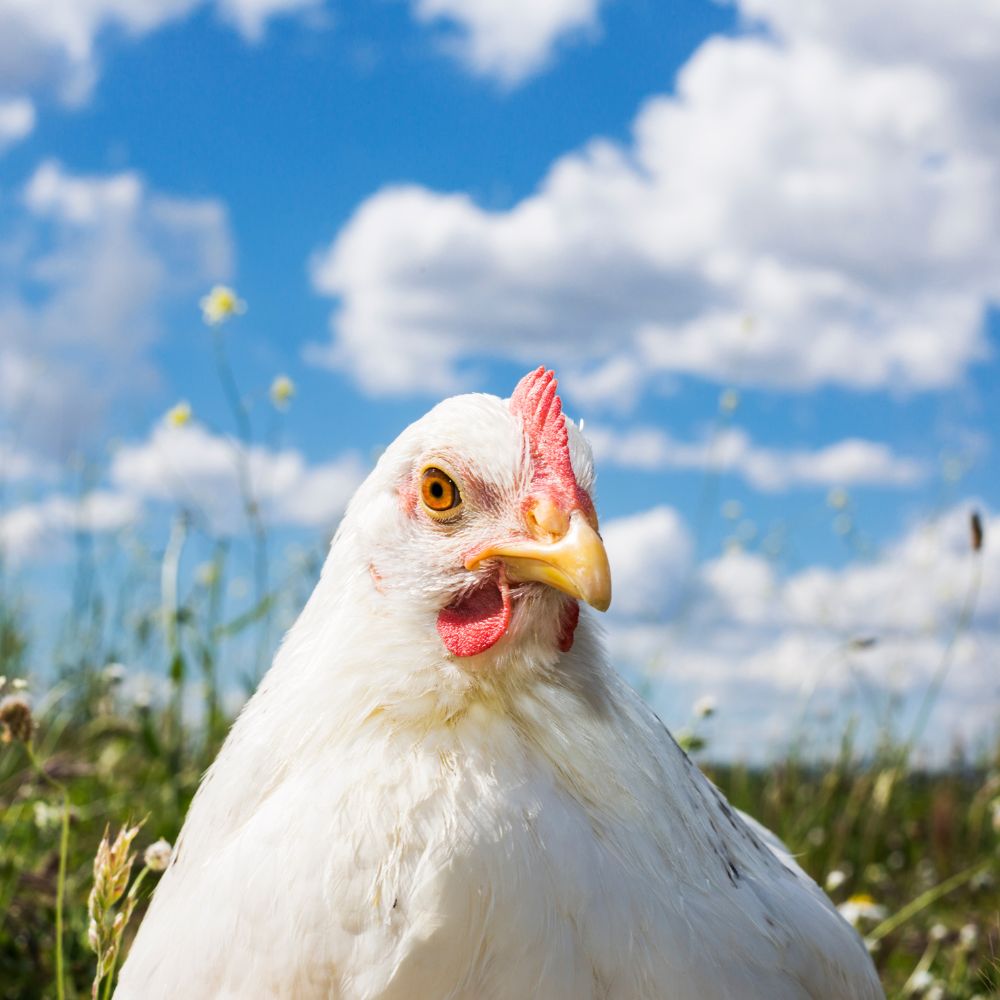
Table of Contents (Quickly Jump To Information)
Why Do Hens Crow Sometimes?
The Pecking Order
You are likely already familiar with the pecking order in chickens, but if not, now is a good time to brush up on it! The pecking order is an established order of dominance that makes itself clear very early on in a group of chickens. Whenever new chickens are introduced to the flock, the pecking order must be re-established.
Often, a hen crows to establish her place in the pecking order. Hens do this to assert their dominance and establish a territory just like roosters will. If your hens are crowing, chances are, they’re on some sort of power trip and sporting a masculine trait.
Keep in mind, the crow won’t sound exactly like a rooster’s, but if you’re new to raising chickens you might have a hard time differentiating between the two. The crows might sound a bit strangled and terse, in fact.
You’ll know that the crowing behavior is related to a pecking order issue if there are some other behaviors that are going on in the flock. For example, there might be some aggression among your chickens or even some bullying behaviors (like feather picking) going on.
One tip – if your chickens are bullying each other, it might be due to boredom. Toss them a few treats, like these tantalizing mealworms. It often makes a world of difference!
In most cases, this will sort itself out in a matter of a few days. If it doesn’t, though, you may need to remove the more dominant hen and isolate her until she calms down a bit. A new pecking order will be established in her absence, and things will likely be more mellow upon her return.
Lack of a Rooster
If you once had a rooster but no longer do, occasionally, a hen (usually the alpha hen) will decide to take his place and start crowing. When hens crow, this is often related to the pecking order or flock hierarchy, and more often than not occurs as your hen imitates the behavior of roosters.
In fact, one backyard chicken keeper on BackyardChickens.com writes,
… a dominate hen, top of the pecking order, will take over rooster duties… that means crowing occasionally… and mounting other hens. So watch out!
Don’t worry too much, its not as often or as loud as a true rooster.
vfem, Fuquay Varina, NC
Presence of Male Hormones
Wait, a hen can turn into a rooster? Well, sort of. If you’re wondering why your hen is crowing – know that it might actually be a rooster’s crow that you hear!
It is entirely possible for a hen to develop a few male spontaneous sex hormones, either from birth or sporadically. Testosterone levels will rise, and as a result, you might notice your hen adopting more masculine features, such as the production of spurs, a slowing in egg production, the development of pronounced wattles, combs, plumage, and – you guessed it…a crow.
Can Female Chickens Turn Into Males?
A hen is born with two ovaries, just like a human. The left ovary grows and develops, producing all the estrogen (the female hormone) a hen needs to regulate the production of ova (or oocytes in chickens). They release into the oviduct tract.
The right ovary, on the other hand, does not develop as the hen grows, instead remaining dormant, tiny, and mostly undeveloped.
Spontaneous sex reversal can occur if the left ovary is damaged or stops producing the required amounts of estrogen for some reason. Since the left ovary is the only one producing any estrogen, without it, her levels of estrogen will drop and her testosterone will rise. She will start to transform to take on male characteristics and behaviors.
But is she now a rooster? Well…kind of. Technically, she is still a hen, as testosterone levels aren’t high enough to fully make her a rooster – it’s just enough to confuse the flock owners!
Interestingly, though, once the left ovary totally fails and the right one turns on, it will develop into a male sex organ, known as an ovotestis, which can actually produce sperm and cause your hen to try to mate with other hens in the flock!
Usually, these kinds of changes aren’t at all noticeable unless there is some kind of hormonal issue in your hens. This cause of crowing isn’t as common as others, but it can still happen – and is something to be aware of.
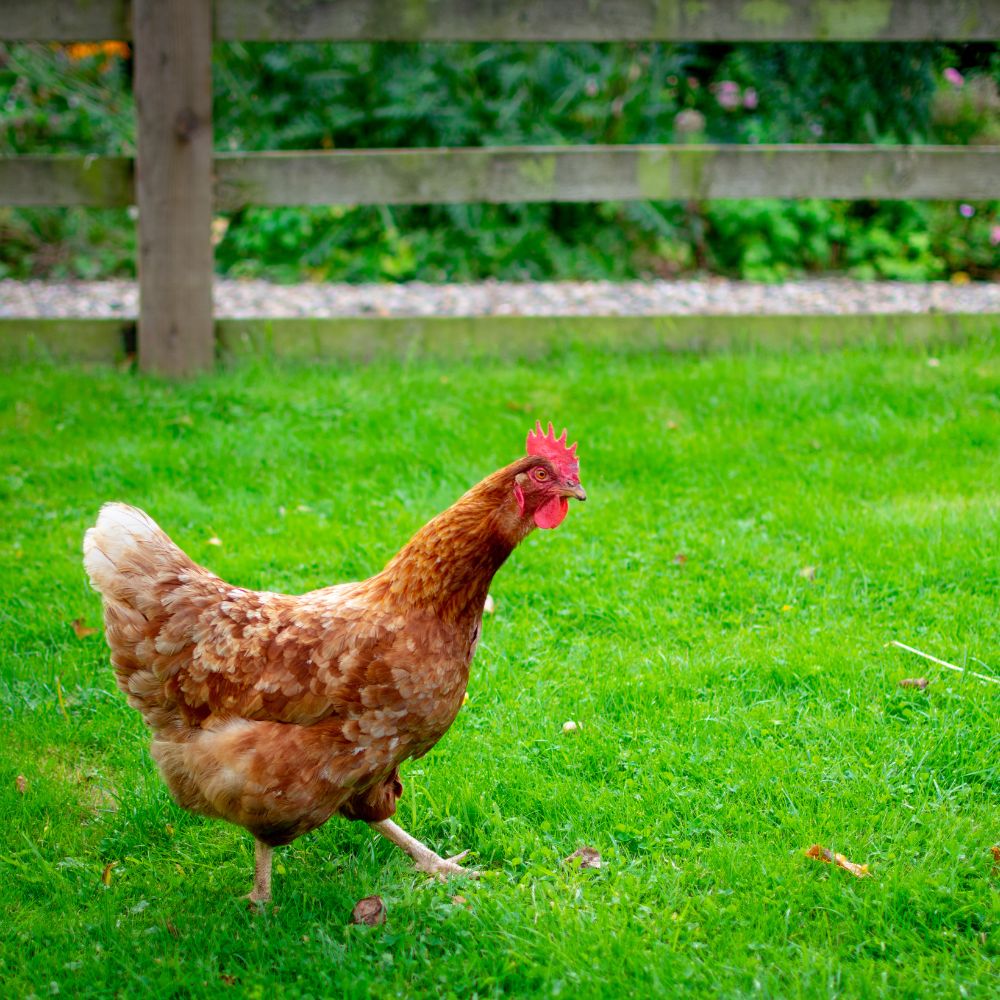
What Are Normal Noises for Hens to Make?
If you think your hen might be crowing, listen carefully – it might not be a crow but instead some other kind of noise that your hen is making. Here are some of the most common chicken sounds.
Cluck of Contentment
When you spend a lot of time listening to your hens as they free range around the pen, this is a call that you will likely hear your chickens making quite frequently. It sounds like a calm and peaceful low murmuring. They make this sound to indicate to each other that they are all in earshot and are doing well.
Alarm Call
This is perhaps the second most common chicken noise you will hear – but it’s not necessarily one you want to hear. If your chickens start the alarm call, which sounds like a fast, loud, and persistent repetitive clucking, you need to check to see what’s going on.
Left unaddressed, that call will turn into a sharper, more piercing shriek or scream – it means something (like a predator) is coming after them.
Egg Song
The egg song is most often heard by coops with multiple hens, where they’re all vying to get into the nest boxes at the same time to do their egg laying. It sounds loud and persistent and will continue until the noise-making hen gets her way and is finally able to wiggle into a nesting box.
Broody Growls
If you’ve ever had to deal with a broody hen, you are probably familiar with the broody growl. When a hen does not want to leave her nest, she will puff her chest up, growl, and even hiss when challenged.
Later, the broody growls should shift – if a broody hen is allowed to hatch her own eggs, she will start to murmur and coo to her unhatched chicks. This often starts before the eggs hatch, when the mother hen is starting to talk to her chicks inside the eggs.
You can sometimes hear the chicks talking back!
If it is a broody lady to blame for all the ruckus, make sure you’re taking good care of her. A few nesting herbs, like these, can really go a long way!
Food Call
Last but not least is the food call. Although this is usually the rooster’s job, if you don’t have any roosters in your backyard flock, you might find that one of your hens takes this job upon herself instead, as the dominant leader.
When she finds good food, she will announce it with a sort of “tuk tuk” call to draw in the rest of the flock. It’s similar to the call used by a mother hen when she talks to her young.
If you want to determine whether it’s the food call that you hear, try tossing some chicken scratch like this blend to your ladies. You’ll likely hear them chatter away!
The “Crow”
You might be wondering, what does a “hen crow” actually sound like? If you can’t identify your hen’s vocalizations based on the categories above, it might be a uniquely crowing hen that you’re dealing with.
One chicken keeper on BackyardChickens.com describes her hens crows as such:
…not a really hearty crow, more of a muffled whining cackle. It wasn’t incredibly loud but it woke me up from a good 200 feet.
myjunoli
Summary
So, can a female chicken crow? They sure can. I know it’s weird but true…and pretty interesting. Just don’t panic as this behavior is normal (maybe not common, but nothing to worry about).
Related Articles
- How Cold Is Too Cold For Chickens?
- Raise Golden Comets For Lots of Eggs!
- Can You Freeze Eggs?
- Why Won’t My Hens Use Their Nesting Boxes?
- Uncovering The Mystery – Why Do Roosters Crow?
Maat van Uitert is a backyard chicken and sustainable living expert. She is also the author of Chickens: Naturally Raising A Sustainable Flock, which was a best seller in it’s Amazon category. Maat has been featured on NBC, CBS, AOL Finance, Community Chickens, the Huffington Post, Chickens magazine, Backyard Poultry, and Countryside Magazine. She lives on her farm in Southeast Missouri with her husband, two children, and about a million chickens and ducks. You can follow Maat on Facebook here and Instagram here.

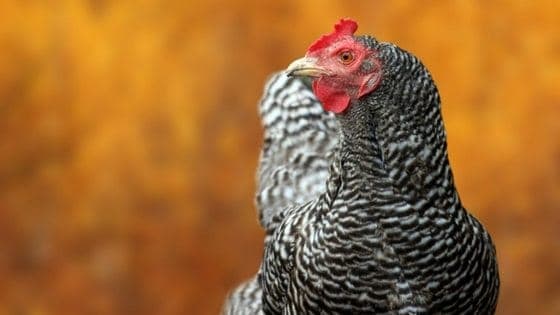
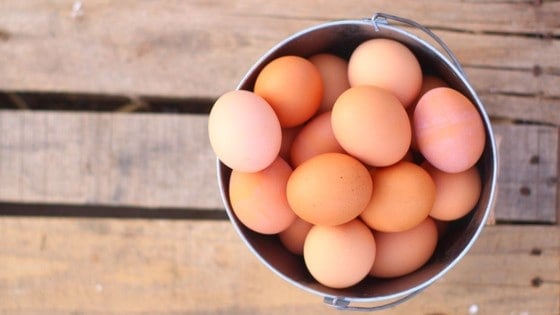

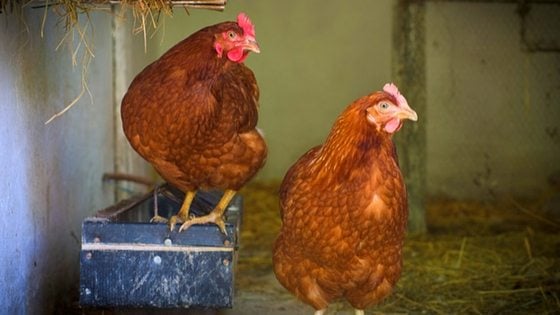
![How To Clean Your Chicken Coop [Podcast]](https://thefrugalchicken.com/wp-content/uploads/2016/05/How-To-Clean-Your-Chicken-Coop-feature-min.jpg)
